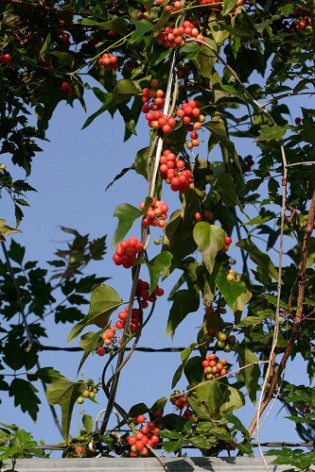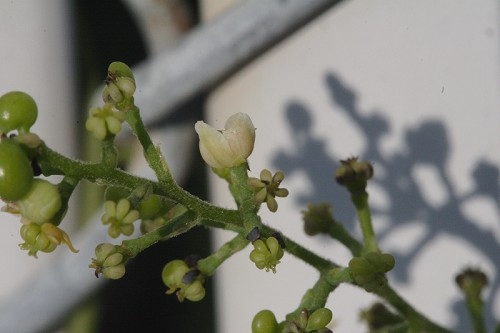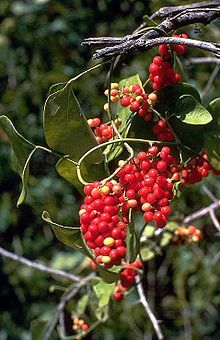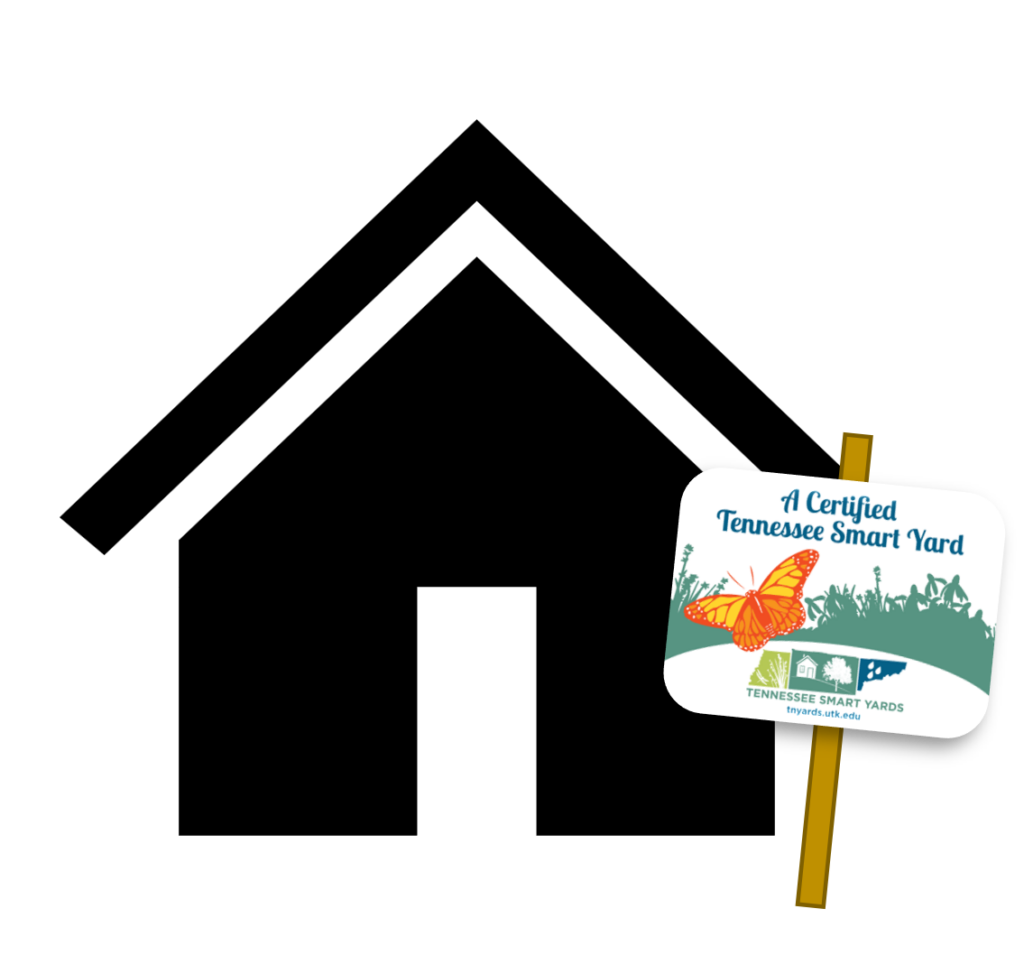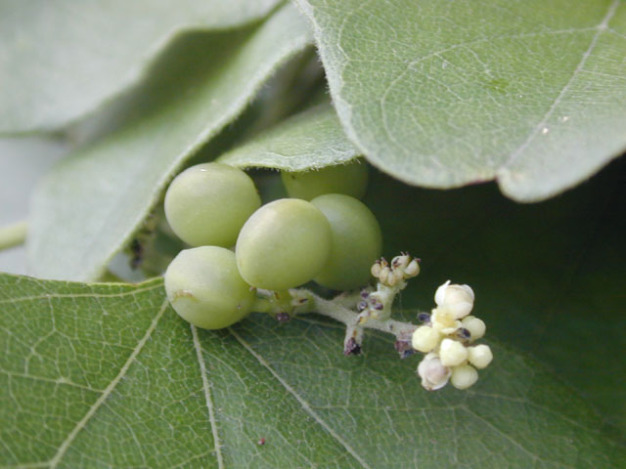
Common Name: Carolina Snailseed, Coralbeads
Full sun to shade; medium moisture level; quite adaptable to soils including pure sands, gravels, loamy sands, organic soils, peats, mucks, fine sands, silt loams, and silts; slightly acid to slightly alkaline pH.
10-14 feet height by 3-6 feet width; blooms July and August, greenish white flowers which are not showy; glossy, red, pea-size berries that hang in loose, drooping, grape-like clusters.
Growth Rate: Very fast, at 6-10 feet per year. New vines usually do not produce fruit in the early years.
Maintenance: Infrequent susceptibility to diseases and insects. Easy to grow and low maintenance. Wood is soft and porous and stems are easily broken.
Propagation: Seed germination code C (90). Propagate by cutting half-ripened wood or by seed. Once planted, seeds will germinate in 21-30 days.
Native Region: Statewide
Best ornamental features are its foliage and attractive red berries in fall. Climbs with thin, twining stems or scrambles across the ground. Can be used on trellises, arbors or fences or woven through large shrubs, screens or hedgerows. Berries are poisonous to humans. Attracts birds.
